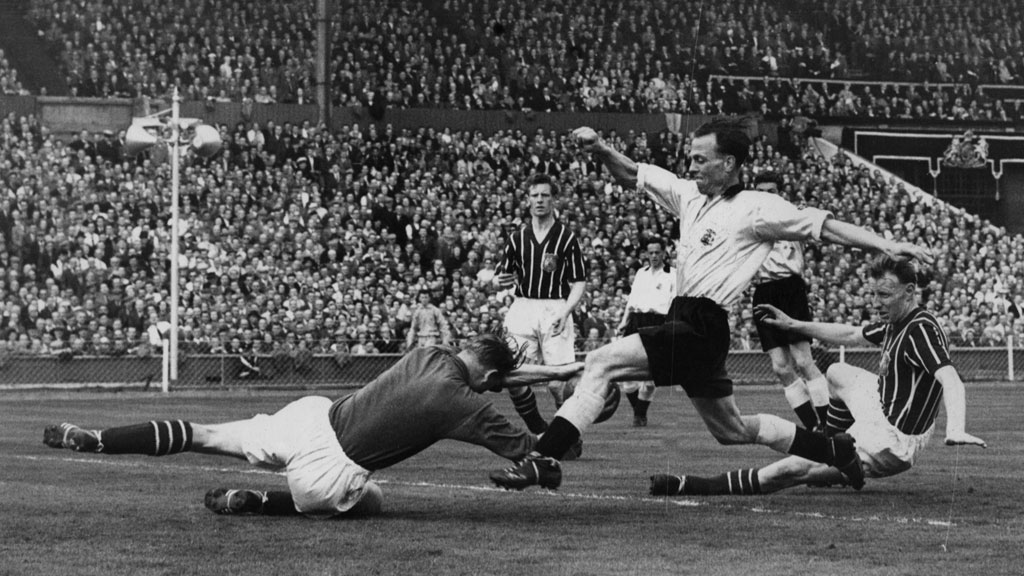Footballer and PoW Bert Trautmann dies
Bert Trautmann, a former Manchester City goalkeeper who arrived in Britain as a German prisoner of war and played in the 1956 FA Cup final with a broken neck, has died aged 89.

His willingness to stay on the pitch for the final 17 minutes of the final, despite his injury, helped his team claim victory over Birmingham.
Trautmann, a former paratrooper, is also remembered for his work promoting British-German relations after the second world war, for which he received an OBE in 2004.
Bernhard Carl Trautmann came to Britain as a prisoner of war and decided to remain here after hostilities ended, joining non-league St Helen’s Town.
His prowess in goal led Manchester City to sign him at a time Germans were deeply unpopular in this country. The move led to protests in Manchester, particularly among the city’s Jewish community.
The then rabbi of Manchester, Alexander Altmann, intervened to insist one man should not be held responsible for the sins of his nation.
Hostile reception
An obituary on the Manchester City website says: “Of course, the early days were difficult and it took the general populace time to forget his past, but so courageous were his performances that his brilliance as a goalkeeper eventually won over a nation and Trautmann became an incredibly popular figure, though nowhere more so than among the City fans where initial suspicion had turned to hero worship.
“During one of his first games in London, still recovering from the substantial damage inflicted during the countless Luftwaffe air raids, Trautmann overcame a hostile reception to perform magnificently.
“At the end of the game, the players formed a line either side of the tunnel and applauded him off while the crowd at Fulham afforded him a standing ovation.”

With Man City leading 3-1 in the FA Cup final, Trautmann was injured while colliding with a Birmingham player (see picture above).
“It would be three days before X-rays confirmed he’d actually broken his neck and the story quickly spread around the world about a man who played on despite the agony the injury was causing him, all so that City could win the cup.
“His heroics that season earned him the footballer of the year award – the first time it had been won by a foreigner, but it is understandable but a pity in many ways that this incident above all others is constantly referred to rather than the consistency and brilliance he showed for more than 15 years with the club.”
Icon of the game
Trautmann played more than 500 times for Man City between 1949 and 1964, his lowest point the loss of his five-year-old son John in a car accident in Manchester.
After his playing days, he moved into management with Stockport before returning to his native Germany in 1967 to coach Preussen Munster. He died at his home near Valencia, Spain, on Friday, having survived two heart attacks in 2013.
Former Man City secretary Bernard Halford, a long-standing friend, said on behalf of the club: “There was a lot of animosity towards Bert after the war because of his German roots.
“But Bert, being the character he was and the player he was, completely won them over, and the fans and people throughout football absolutely worshipped Bert Trautmann. He is a true icon of the game.”
German FA (DFB) President Wolfgang Niersbach said: “He went to England as a soldier, and thus a war enemy, and he became a celebrated hero there. He was a legend.
“His extraordinary career will remain forever in the history books.”